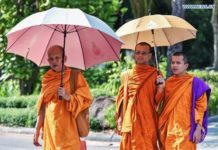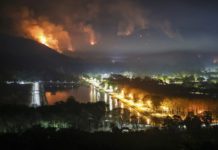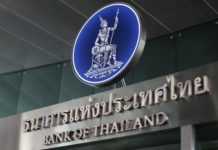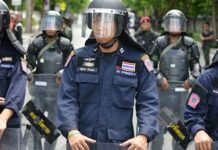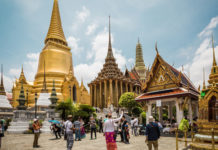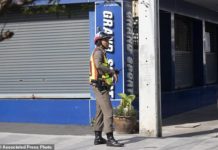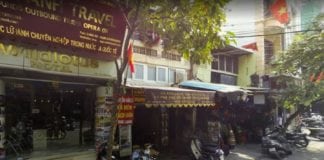THAI space agency Geo-Informatics and Space Technology Development Agency (GISTDA) warned that a 21.6-ton chunk of China’s Long March 5B-Y4 rocket is on track to fall back to Earth on Saturday Nov. 5 with 11 provinces at risk of being hit although the chances of an impact is just 1.4 percent, Sanook.com and Businessinsider.com said.
China successfully launched the third and final piece of its new Tiangong space station on Monday — and the rocket’s 21.6-ton body is now coming back down somewhere on Earth, likely on Saturday.
The Mengtian module, which carries science experiments, blasted off on China’s Long March 5B-Y4 rocket. As it climbed into space, the rocket’s core stage gave the space-station module one last push into Earth’s orbit before detaching itself.
Unlike most modern rocket bodies, which are designed to push themselves into a remote part of the Pacific Ocean, the Long March 5B-Y4 body fell into its own orbit around Earth. It’s on track to descend into the atmosphere again — an event called “re-entry” — and fall to Earth.
GISTDA said Thailand is affected because this space object passes the country everyday. Today it passed 11 Thai provinces from 1.54 p.m. to 1.56 p.m. with these being Chiang Rai, Chiang Mai, Phayao, Nan, Nong Khai, Udon Thani, Kalasin, Roi Et, Yasothon, Amnat Charoen and Ubon Ratchathani.
This rocket body is currently orbiting 177 kilometres above Earth and weighs 21.6 tons but it will decrease in size because some of it will burn out in the atmosphere.
However, as of today the risk of this rocket body hitting Thailand is only 1.4%, which is very low. Nevertheless, GISTDA will monitor the situation and areas that are at risk 24 hours a day and will continue to issue reports.
Remnants of China’s big rocket landed in the Indian Ocean on May 9 this year, with the bulk of its components destroyed upon re-entry into the Earth’s atmosphere, Reuters said.
“Spacefaring nations must minimise the risks to people and property on Earth of re-entries of space objects and maximise transparency regarding those operations,” NASA administrator Bill Nelson, a former senator and astronaut who was picked for the role in March, said in a statement after the re-entry.
“It is clear that China is failing to meet responsible standards regarding their space debris.”
Ever since large chunks of the NASA space station Skylab fell from orbit in July 1979 and landed in Australia, most countries have sought to avoid such uncontrolled re-entries through their spacecraft design.
“It makes the Chinese rocket designers look lazy that they didn’t address this,” said Jonathan McDowell, a member of the Harvard-Smithsonian Centre for Astrophysics.

